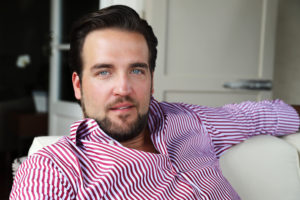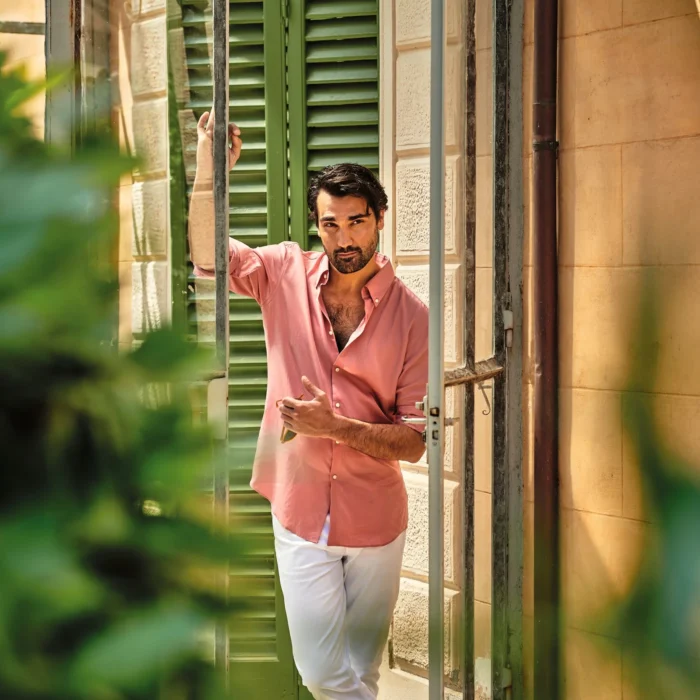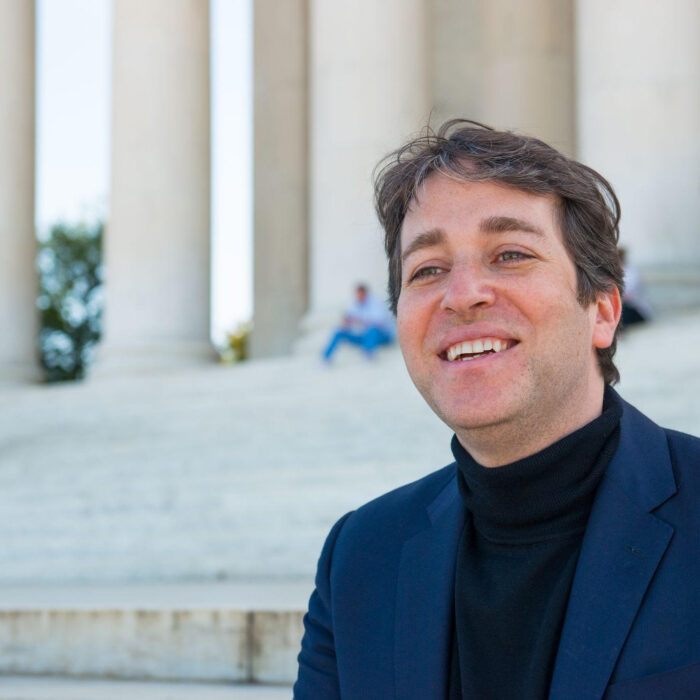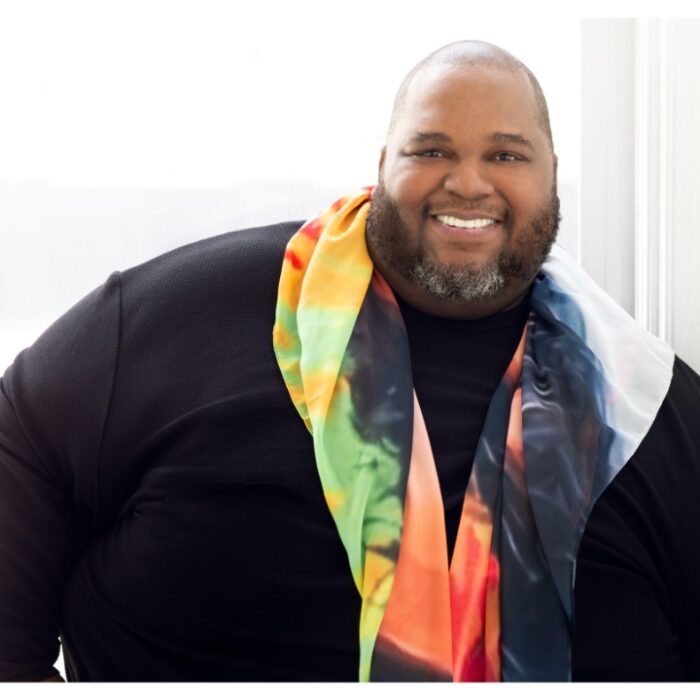
Opera in the Time of COVID: Brian Jagde, Star Tenor, Arts Ambassador & TV Binger
By David Salazar(Credit; Frances Marshall)
OperaWire: What have you done during this time to keep yourself positive and productive?
Brian Jagde: A lot of things! There’s so much time in a day, as one realizes when there are no performances, it’s necessary to keep busy.
On the musical side I’m still having lessons, and working up roles that are (hopefully) coming up in the future. I’ve also been having some fun (surprise!) Insta Live chats with friends and colleagues where we talk about our lives during the pandemic, and what we’ve been up to with the hopes of promoting positivity and a connection to one another.
I joined the Soloist Coalition which is a subsidiary division of AGMA, and I’ve been participating in discussions of how we move forward as artists in a business that relies so heavily on the ability for our audiences to see and hear us. This has been extremely informative, and has shed a light on how soloists for a very long time had not participated as much as we should have in our careers when it comes to our union and house relations.
Now that we have ample time we can really get our feet under us and in a way, press the reset button. Hopefully this will lead to a better work environment for everyone, when we all return to our beloved audiences whom we miss so much.
I’m volunteering a bit through Opera for Peace, a great international organization where I serve as an Ambassador. I gave a lesson to a young singer from Jordan the other day which was a lot of fun.
In the last couple of years I’ve really found a stress outlet of going to the gym and working out. In my apartment in NYC I have a bench, some free weights, bands, and an exercise bike. Who knows … maybe I’ll be ripped when this is all over. HA!
Also, as some people may know, I am a TV addict! There’s no shortage of shows out there for me to dive into and binge. With all of that, if there’s a side project I can achieve every day around the house it’s a nice way to keep the place running while in closed quarters.
OW: What do you feel will be the greatest impacts of COVID-19 on the opera world moving forward? What are some new developments that you feel are here to stay?
BJ: Times like this are unprecedented. We as a collective have known for a while how fragile this art form can be even in normal times, despite having incredibly loyal fans. This reset button has already cost the industry hundreds of millions of dollars, whether it’s artists like myself who’ve lost six months or more of work, or houses having to close down and furlough or fire workers, losing money they spent already toward productions, and the losses from the inevitable ticket sales that would’ve come from people viewing and experiencing those events.
In the end, one of the only positive aspects I can see of this pause is that we as a community are being forced to be even more engaged with our audiences through other channels, and I think that even after we return to the stage, that presence will have to be continued.
There are many fundraisers going on for opera companies and charities, many from people’s living rooms, and those efforts may continue after the pandemic as well. It’s a great way for people who haven’t experienced the beautiful operatic music that’s out there, to get a taste of what they are missing in the live theaters. It can continue to help raise money for what was already an industry funded (in the US) mostly by private donations.
With little to no state or federal funding going to the arts, let alone opera, the managers of companies may see how important continuing this type of community engagement via the web is to our future. I’m hoping we will come back stronger, having learned a lot about our failures and our strengths, with the ultimate goal of being more secure than ever when we restart.
OW: One of the major developments of this time are the emergence of streaming and connecting with fans and followers more directly via social media. How has this impacted your time in quarantine?
BJ: As I mentioned above, it’s critical in this time for us to keep our audiences engaged. You can tell already that there is a gap in peoples’ lives without access to live performances, so anything we can do to keep people with us through this and in a way to give back to them for their undying support, will only make us stronger in the end.
I personally know I’ve found the performances I’ve watched from home to be uplifting and promoting positivity. The joy of music has definitely made these days easier than they would be without. However, as fantastic as the access to online content is during this time, nothing can quite replace the experience of being an audience member in the theater, surrounded by unamplified voices and instruments making music together.
OW: What is an outcome of the preponderance of streaming that you didn’t expect?
BJ: I think that the outcome that I’m most surprised by is just how many people are watching all of these broadcasts and other videos, and how much they appreciate the ability to still have their emotions touched by opera despite not being in the actual spaces.
OW: What do you enjoy most about knowing that so many of people are watching opera online daily?
BJ: This situation is a bit of an equalizer. In opera there’s often the idea that the art form is only for posh or wealthy audiences and has to be extremely polished, but I think that right now, if a singer of any level who gets up, records themselves and sings for us is really sharing a gift that’s meant for everyone to enjoy. That is truly human, and is one of the best parts of who we are and what we can offer. It doesn’t matter if people are famous, a student, or aspiring singer, the fact of the matter is they are spreading joy, and it makes us feel a sense of togetherness even while we are apart.
OW: What is something that makes you apprehensive about streaming’s sudden preponderance? How can opera companies and artists around the world learn from it moving forward and should it become a bigger part of the opera season experience moving forward?
BJ: The fact that this is made so available to us right now is great. It’s given everyone in the industry a lot to think about. There are are a lot of fans out there, and while there’s a lot of free online content available due to the pandemic, I hope and believe that in the future these audiences will come back to the opera houses and concert halls once there is money to spend again on things that bring us such beauty and humanity. For an art form that is always looking for ways to stay vital, alive, and new, this has been a major lesson for us despite the growing losses.
OW: In your view, is a continuous streaming platform feasible for all parties (not only companies but artists) involved?
BJ: I believe it’s entirely possible for any company to create some sort of streaming platform. There are so many ways to stream live these days, there really will be no excuse after. The bigger challenges come in maintaining a level of quality when we’re all doing things on phones and in our homes.
I would be especially happy if we could find a way for people to feel the sound of our voices better than we have been doing lately in recordings and broadcasts in general. So we are as close to the experience of being in the theater as possible, whether you’re listening to a CD or watching an opera broadcast at a movie theater.
Something I’ve personally disliked about many modern recordings is the fact that operatic voices tend to be limited in how they’re captured. We need to be recorded in a special way. We aren’t trained to only sing two feet in front of our faces, so we shouldn’t be recorded that way. We’re taught how to use the human voice to its greatest potential, to project our voices into theaters of all sizes and to surround people with those sounds, those vibrations. There are so many levels of resonance in the voice, and in general our audiences are only experiencing a limited amount of them in broadcasts and recordings.
I’d love it if during this time we could develop – through trial and error – a better way to get the feeling across to our audiences. When I’m sitting in a theater in the audience, there’s a visceral feeling from opera that I don’t get from any other musical experience. I want the audience to have that no matter how they’re listening to opera!
OW: What are you most excited about doing once the quarantine officially comes to an end and we are allowed to resume a “normal” life? Which activities do you miss the most?
BJ: That’s an easy one for me. Singing for a live audience again! We forget that an audience is an integral part of our performances. We can feel the energy coming from them, and it affects our performances on the stage. I can’t wait to feel the power of live theater again. I am missing it terribly.
Besides singing for the public, I miss being outside for more than just a walk. I miss some of the travel, more so the destinations than the journeys. And I’m a New Yorker, so not being able to be out around the city, seeing a show, having a nice meal with friends, it’s tough. It’s also the little things like hugs from loved ones, all of the interpersonal connections that just aren’t possible via FaceTime.
OW: Who have been the people you have relied on most to help you through these challenging times?
BJ: During times like this we all have to lean on our friends and family, and as artists working full-time, that also includes our teams. The ones who we always turn to during hard times and the ones we always share the good times with in turn. Even though it’s all over video conference platforms, it’s being connected as much as possible with my loved ones that has made this journey a little easier.
Every time I hear of another cancelation my heart just sinks, and it’s nice to have people I care about and who care about me, to virtually lean on when that happens, so that I can move more quickly towards resolving that sadness and venture onto the next thing. This of course includes my dog Cavaradossi, who is doing his best to keep everyone’s spirits up in the house!
OW: Most people in quarantine are actively engaging with the arts via either music, TV, film, reading, literature. Etc. What have you been watching or reading during this time?
BJ: SO many TV shows! I was already watching about 45 series in their entirety, every year. TV is a great escape for me, a nice mental break. I’m pretty sure this year it will be doubled as there are just so many hours in a day. I like “Devs,” “Black Monday,” “My Brilliant Friend,” “Billions,” “Homeland,” “Westworld,” “Kidding,” “Hunters,” “Succession.” There are lots of fantastic shows. I’ve also been watching a lot of the “Star Trek” series so I can finally watch “Picard.”
I actually just thought to myself how the shows we are watching now won’t be airing again for quite some time once we’ve seen their most recent seasons, so there could actually be a deadlock on TV at some point. I don’t know. That might be my tipping point and a sign I need to turn to something else!
OW: Speaking more globally about the pandemic, what can the world learn about this experience? What do you hope to see from our leaders (political or even industry) in order to build a better future that enables us to better manage any similar type of situation?
BJ: There’s no question that the world leaders, none more than our own in the U.S., have failed in so many ways to take even the possibility of something like this seriously in the past, and now we are all paying for those mistakes. I think by now we’ve all seen the Bill Gates TED talk video where he spelled out, almost to the letter, how bad this kind of thing would be once it hit. That video and tons of others from world renowned scientists have been saying this for years, and still the governments didn’t take it seriously enough.
My hope, and I’m sure everyone’s hope, is that we will be more prepared next time this kind of thing happens and that governments will no longer promote the ideals that don’t back up science. That we will put less money into inflated contracts, endless wars, and the already overflowing bank accounts of tremendously wealthy people and corporations, and more into finding sources of illness earlier and how to fight them better, while supporting our scientific community when it comes to bettering our use of this planet. I also hope we will prioritize support for the populations who desperately need it. So, that, it’s not just about the people living now, but in the future as well.
My hope is also that the selfish nature of our society will continue to diminish and that we will move forward as one world to overcome these and so many other issues revolving around global warming, consumption, and financial disproportion.
Before this pandemic hit, we were elevating a society of elitists above those without means, with such a drastic difference between those groups, but during this kind of event it’s a wake up call that literally anyone can die, at any time. Anyone can be poor, regardless of the circumstances you’re born into, and anyone can lose their way of life and struggle to find a new one. So, maybe it’s time for us to be more collective in our thinking, and find a way for us all to thrive bigger and stronger than before. I hope we will still value and promote arts, culture, and the humanities as we recover from this as well. We should celebrate the many things who make us who we are, and the things that bring meaning to our lives.
Categories
Interviews

